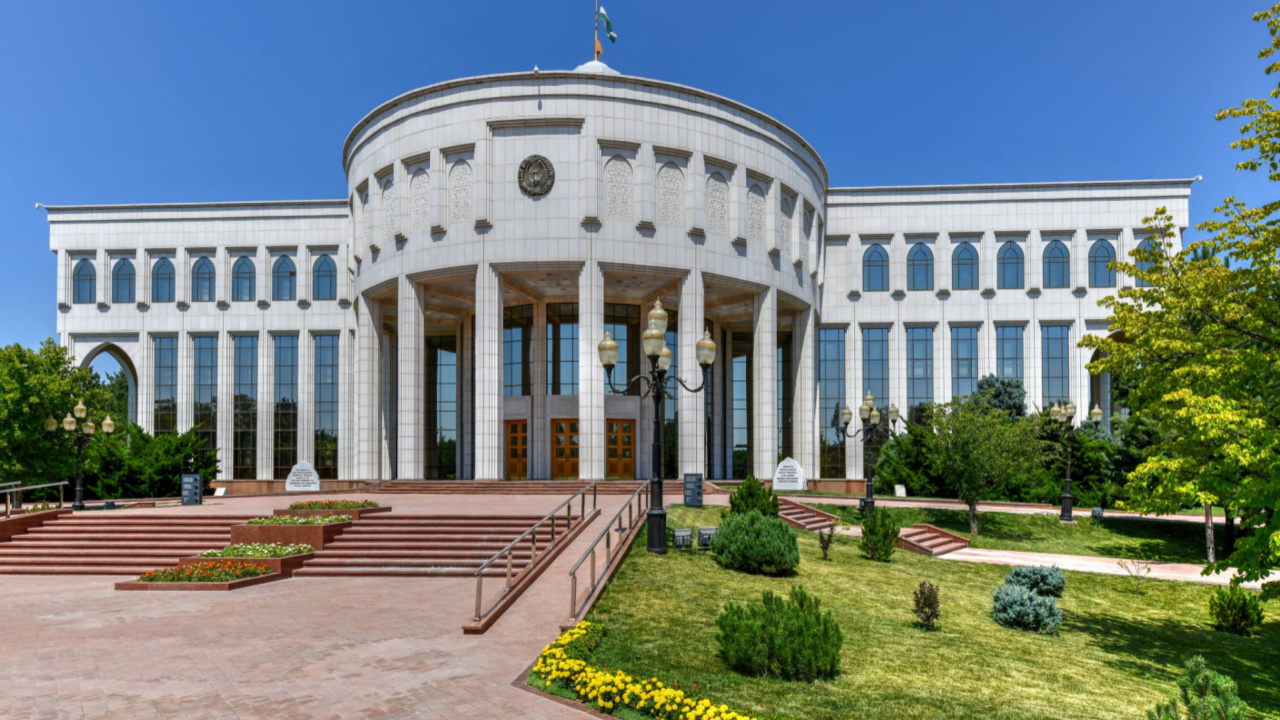by Lubomir Tassev
Authorities in Uzbekistan are restricting access to online crypto trading platforms based outside the country and not registered under its laws. A presidential decree obliges citizens and local companies to only use digital asset exchanges licensed by the government of the Central Asian nation.
Uzbekistan’s National Agency of Perspective Projects (NAPP) has registered a spike in activities of online platforms providing crypto-related services to Uzbekistanis without the necessary license. The regulatory body says these facilitate trading of cryptocurrencies and request personal information without complying with a requirement to have their servers installed in the country.
In a recent statement, the agency pointed out that such platforms “do not bear any legal responsibility for carrying out operations with crypto assets, cannot guarantee the legitimacy of transactions, as well as the proper storage and confidentiality of the personal data of citizens of the Republic of Uzbekistan.” In light of these findings, the regulator has restricted access to their domains.
The announcement highlights that the government of Uzbekistan has made consistent efforts to improve the regulatory and institutional framework in the crypto space. A decree signed by President Shavkat Mirziyoyev in 2018 defined the types of business activities pertaining to digital assets like the mining of cryptocurrencies and the provision of services related to their circulation.
Providers whose activities are subject to licensing include mining pools, cryptocurrency exchanges and depositories, as well as other crypto companies that offer individuals or legal entities services for the purchase, sale, exchange, storage, issuance, placement, and management of crypto assets.
Regulations adopted this past April allow Uzbekistanis and businesses based in their country to acquire, sell, and exchange cryptocurrencies exclusively on domestic platforms, starting from Jan. 1, 2023. NAPP now emphasizes this doesn’t mean local firms and citizens are granted the right to conduct such transactions on foreign platforms before that date.
So far, Uzbekistan has licensed only one cryptocurrency exchange. Operated by the South Korean entity Kobea Group, Uznex launched in January, 2020. Last fall, the National Agency of Perspective Projects issued a warning for Uzbekistani crypto traders to avoid unlicensed exchanges, which leaves them with a single legal option.
The agency has also reminded all residents of the country that they can perform crypto transactions on registered exchanges with the national currency, the som, and sell crypto assets to non-residents for foreign fiat currency. The NAPP urges Uzbekistan’s citizens not to use the services of online platforms that have not obtained a license to operate in the republic and to report them to law enforcement.
Do you expect Uzbekistan to license more cryptocurrency exchanges in the future? Tell us in the comments section below.
Lubomir Tassev is a journalist from tech-savvy Eastern Europe who likes Hitchens’s quote: “Being a writer is what I am, rather than what I do.” Besides crypto, blockchain and fintech, international politics and economics are two other sources of inspiration.
Image Credits: Shutterstock, Pixabay, Wiki Commons, Felix Lipov
Disclaimer: This article is for informational purposes only. It is not a direct offer or solicitation of an offer to buy or sell, or a recommendation or endorsement of any products, services, or companies. Bitcoin.com does not provide investment, tax, legal, or accounting advice. Neither the company nor the author is responsible, directly or indirectly, for any damage or loss caused or alleged to be caused by or in connection with the use of or reliance on any content, goods or services mentioned in this article.
Tony Hawk’s Latest NFTs to Come With Signed Physical Skateboards
Last December, the renowned professional skateboarder Tony Hawk released his “Last Trick” non-fungible token (NFT) collection via the NFT marketplace Autograph. Next week, Hawk will be auctioning the skateboards he used during his last tricks, and each of the NFTs … read more.
SEC Risks Violating Admin Procedure Act by Rejecting Spot Bitcoin ETFs, Says Grayscale
Grayscale Investments’ CEO explains that the U.S. Securities and Exchange Commission (SEC) could potentially violate the Administrative Procedure Act by not approving a spot bitcoin exchange-traded fund (ETF). SEC Approving Spot Bitcoin ETF Is ‘a Matter of When and Not … read more.
Check all the news here
Author
Administraroot


